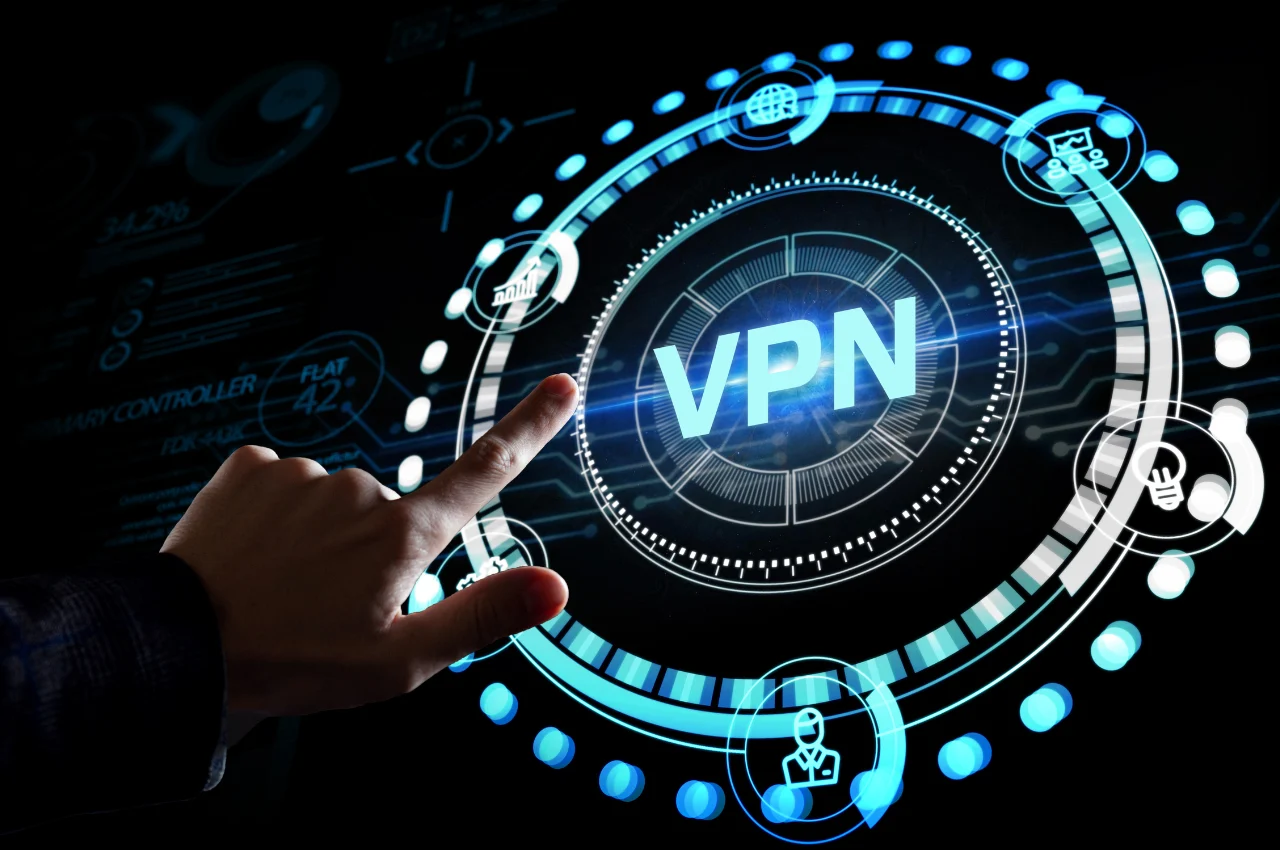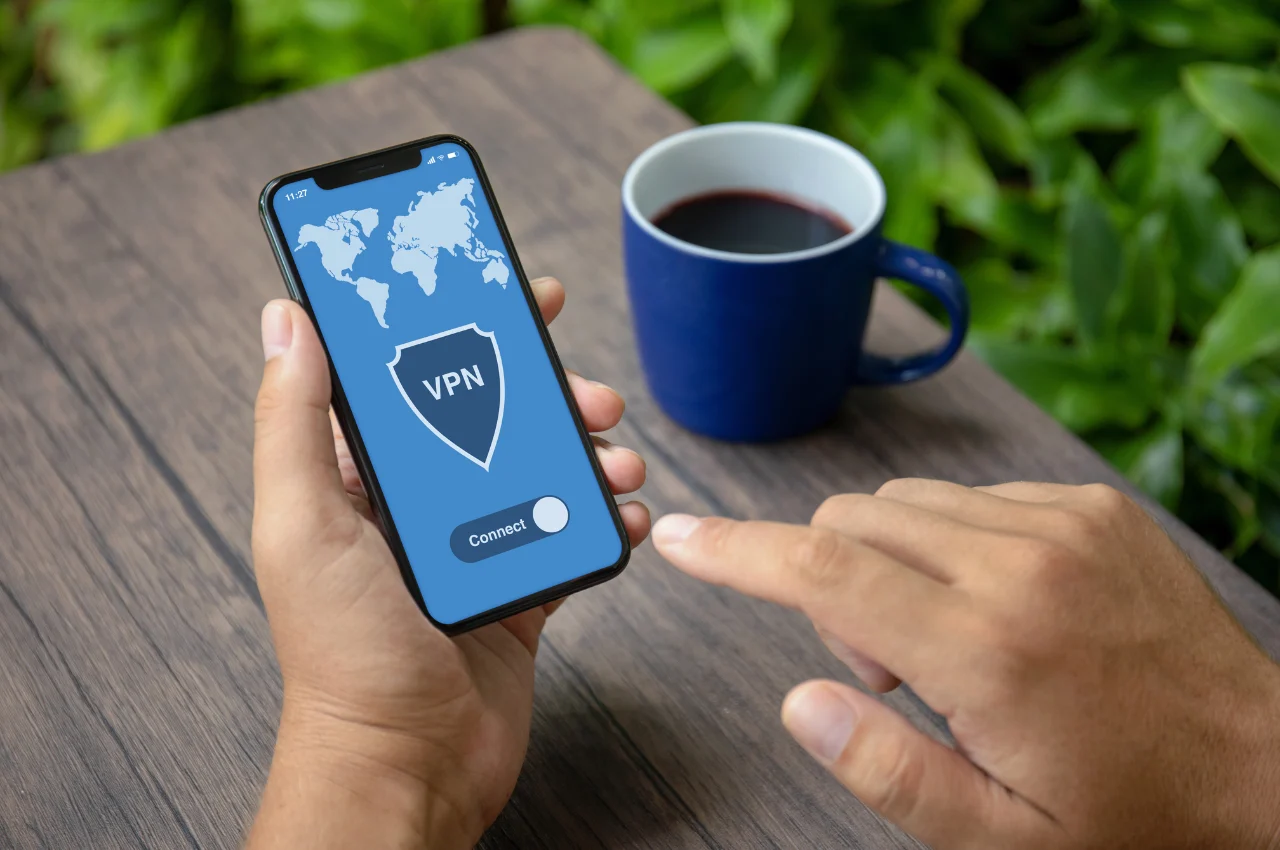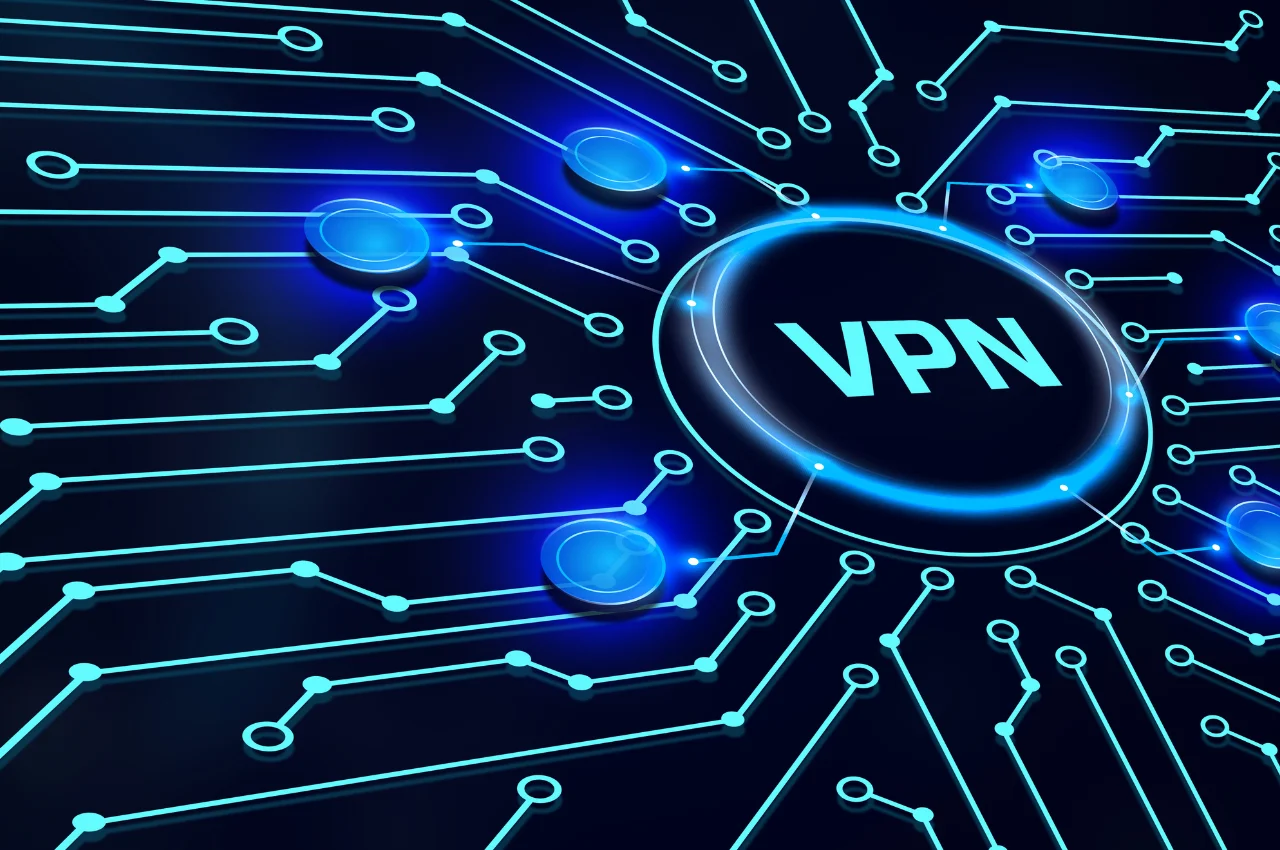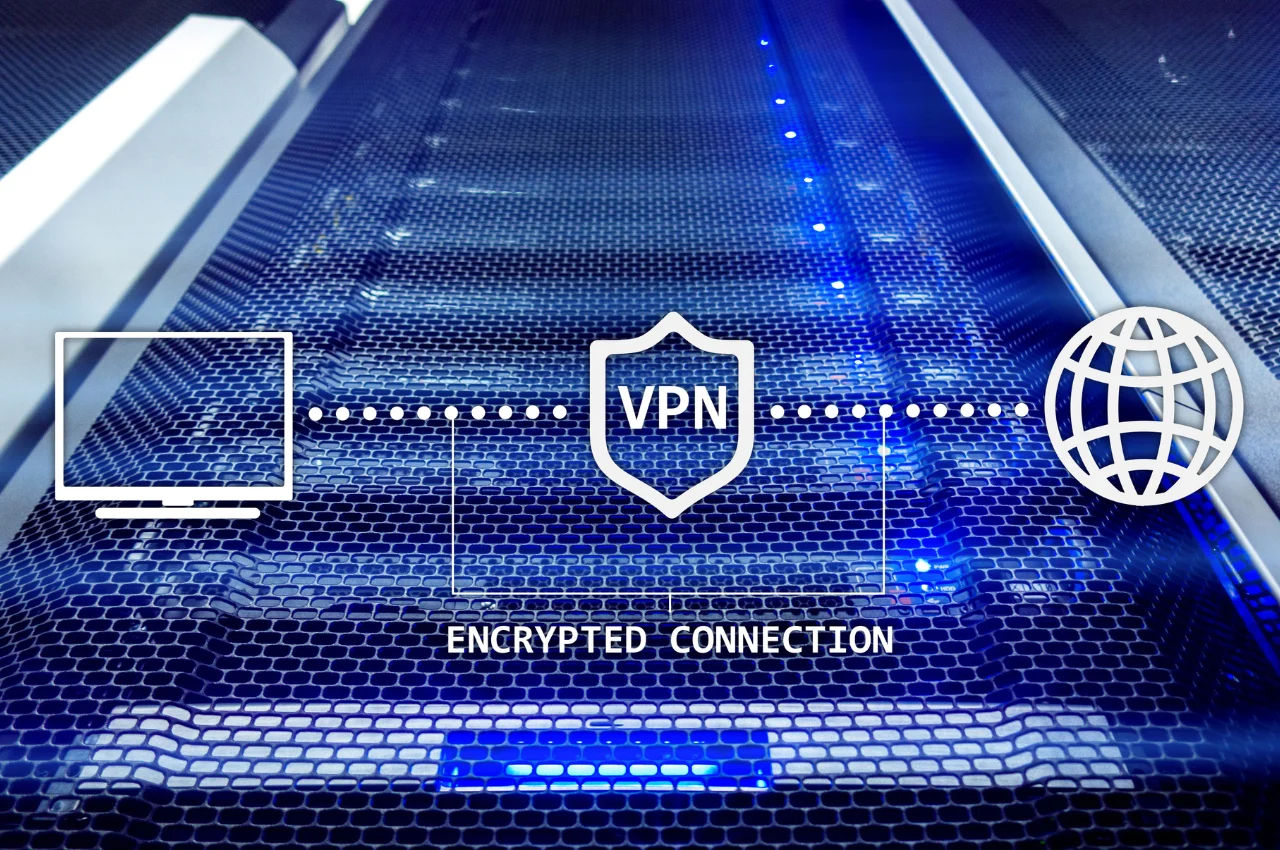A VPN, or Virtual Private Network, is a secure connection that allows users to access the internet privately and securely. It encrypts data and hides the user’s IP address, providing anonymity and security.
In today’s digital age, online privacy and security are of utmost importance. With cyber threats and privacy concerns on the rise, using a VPN has become essential for individuals and businesses alike. By routing your internet traffic through a secure server, a VPN protects your data from prying eyes and safeguards your online activities. It also allows users to bypass geo-restrictions and access region-locked content.
Whether it’s for personal privacy, secure remote access or circumventing censorship, a VPN offers a reliable solution for a safer and more open internet experience.
Table of Contents
The Basics of VPN
When it comes to protecting your online privacy and security, a VPN, or Virtual Private Network, is a powerful tool. It creates a secure connection over the internet, allowing you to browse the web anonymously and securely. In this article, we will explore the basics of VPN, including its definition and how it works.

Definition of VPN
A VPN, or Virtual Private Network, is a service that allows you to create a secure connection to another network over the internet. It enables you to access the internet as if you were connected to a private network, encrypting your data and protecting your online activities from prying eyes.
How VPN Works
VPN works by creating a secure tunnel between your device and the internet. When you connect to a VPN server, your internet traffic is routed through this encrypted tunnel, shielding your online activities from hackers, snoopers, and even your internet service provider.
Benefits of Using a VPN
With a VPN, your online activities are encrypted, safeguarding your personal information from prying eyes. VPN allows you to access content restricted in your region, providing a seamless browsing experience.
Types of VPN Protocols
VPN protocols play a crucial role in ensuring secure and private online communication. There are several types of VPN protocols that offer varying levels of security and performance. Let’s explore some common VPN protocols:
Open VPN
OpenVPN is an open-source VPN protocol known for its robust security features and flexibility. It uses SSL/TLS protocols for encryption and is compatible with a wide range of platforms.
L2tp/ipsec
L2TP/IPsec combines the Layer 2 Tunneling Protocol (L2TP) with the IPsec encryption protocol to provide a highly secure VPN connection. It is widely supported on various devices and offers strong encryption.
SSTP
SSTP, or Secure Socket Tunneling Protocol, is a VPN protocol developed by Microsoft. It leverages SSL/TLS encryption to ensure secure data transmission and is commonly used on Windows devices.
Ikev2
IKEv2, short for Internet Key Exchange version 2, is a VPN protocol that is known for its speed and reliability. It supports mobility and is suitable for mobile devices that frequently switch networks.
Wireguard
WireGuard is a modern VPN protocol that aims to offer high performance and simplicity. It is designed to be lightweight and efficient while maintaining strong security standards.
Factors to Consider When Choosing a VPN
A VPN, or Virtual Private Network, is a secure connection that protects your online privacy and allows you to access restricted content. When choosing a VPN, consider factors such as speed, security features, server locations, and compatibility with your devices to ensure optimal performance and protection for your online activities.
Factors to Consider When Choosing a VPN There are several factors you should take into account when considering a VPN to ensure you select the right one for your needs. From security features to speed and performance and server locations, each aspect plays a crucial role in the effectiveness of a VPN. Let’s delve into these factors to help you make an informed decision.
Security Features
When selecting a VPN, prioritizing security features is paramount. Look for features like strong encryption, kill switch, and DNS leak protection. These elements help ensure that your online activities remain private and secure.
Speed and Performance
The speed and performance of a VPN can significantly impact your browsing experience. Opt for a VPN with high-speed servers, minimal latency, and unlimited bandwidth to enjoy seamless streaming, gaming, and browsing.
Server Locations
The server locations offered by a VPN provider can influence the accessibility and speed of your connection. Choose a VPN with diverse server locations across the globe to access geo-restricted content and maintain optimal browsing speeds. By considering these factors, you can make an informed decision when selecting a VPN that aligns with your specific requirements.
Setting up a VPN
Setting up a VPN is crucial for ensuring your online security and privacy. It involves choosing a VPN service provider and installing and configuring the VPN. Let’s dive into each step:

Choosing a VPN Service Provider
When selecting a VPN service provider, consider factors such as server locations, connection speed, and encryption protocols offered.
Installing and Configuring The VPN
Installing and configuring a VPN involves a few straightforward steps to ensure a secure and private connection. First, choose a reputable VPN provider and download their application or client software from their official website. Once downloaded, follow the installation instructions specific to your operating system.
After installation, launch the VPN application and log in with your credentials. Next, configure your VPN settings according to your preferences, such as selecting a server location or adjusting security protocols. Most VPNs offer easy-to-use interfaces with options for automatic connection and kill switch settings. Ensure that your VPN is set to start with your device and automatically connect to a secure server to maintain continuous protection. Finally, test your VPN connection to confirm it is working correctly and verify that your IP address is masked. Proper installation and configuration will help you enjoy a secure and private online experience.
Vpn Usage Scenarios
Virtual Private Networks (VPNs) are versatile tools that offer a range of benefits in various scenarios.
Remote Work
For remote work, a Virtual Private Network (VPN) is an essential tool that enhances security and privacy. VPNs encrypt internet connections, safeguarding sensitive data from potential cyber threats, which is crucial when accessing corporate networks from unsecured public Wi-Fi. They also allow remote workers to securely connect to company resources as if they were in the office, maintaining access to internal systems and files. Additionally, VPNs enable users to bypass geo-restrictions, allowing access to company content and applications that might be restricted in certain regions. By implementing a VPN, organizations can ensure secure, seamless, and efficient remote work experiences for their employees.
Accessing Restricted Content
Accessing restricted content is a common use case for Virtual Private Networks (VPNs). VPNs allow users to bypass geographic restrictions and censorship by masking their IP address and encrypting their internet traffic. This enables access to content that may be blocked in certain regions, such as streaming services, news websites, or social media platforms. VPNs provide a secure and private connection, making it possible to access and enjoy content from anywhere in the world without compromising on privacy or security. Whether for streaming, accessing international news, or avoiding censorship, VPNs offer a versatile solution for navigating restricted online content.
Public Wi-fi Security
Public Wi-Fi security is a major concern, but a VPN encrypts your data, protecting it from potential threats.
Common Misconceptions About VPNs
Common misconceptions about VPNs can lead to misunderstandings about their capabilities and limitations. One prevalent myth is that VPNs offer complete anonymity, while they primarily protect your data and hide your IP address, they do not make you entirely anonymous online.
Another misconception is that VPNs are illegal; in reality, VPNs are legal in most countries and are used for legitimate purposes like enhancing privacy and accessing restricted content. Some users also believe that VPNs significantly slow down internet speeds; while they might cause a slight decrease, many modern VPNs offer high-speed servers that minimize this impact. Lastly, there is the belief that VPNs are a one-size-fits-all solution for security; however, they are just one component of a comprehensive security strategy and should be used alongside other measures. Understanding these realities can help users make more informed decisions about using VPNs.
Complete Anonymity
Many people believe that using a VPN guarantees complete anonymity and privacy online. However, it’s important to understand that while a VPN can help mask your IP address and encrypt your internet traffic, it does not provide absolute anonymity. ISPs, government agencies, and sophisticated cybercriminals can still track your online activities through other means. Therefore, it’s essential to be cautious and mindful of the limitations of VPNs when it comes to achieving complete anonymity.
Invulnerability to Cyber Threats
Another common misconception about VPNs is that they make users invulnerable to all cyber threats. While it’s true that VPNs add an extra layer of security by encrypting data and protecting against certain types of cyber attacks, they are not foolproof. Users can still be vulnerable to phishing scams, social engineering attacks, and malware infections if they are not practicing safe browsing habits. It’s important to recognize that VPNs are just one component of a comprehensive cybersecurity strategy and should not be solely relied upon for protection against all cyber threats.
Future of Vpn Technology
VPN technology is an essential tool for safeguarding online privacy and security. With increasing concerns about data breaches and surveillance, VPNs offer a secure and encrypted connection, ensuring anonymity and unrestricted access to the internet. The future of VPN technology looks promising, with advancements in encryption protocols and user-friendly interfaces making it more accessible to a wider audience.

The future of VPN technology is exciting, as it promises to bring about more secure and efficient ways of accessing the internet. VPNs have come a long way since their inception, and they continue to evolve with new advancements in technology. In this section, we will discuss some of the enhancements that are expected to shape the future of VPN technology.
Enhancements in Encryption
One of the most significant enhancements to VPN technology is in the area of encryption. Encryption is the process of encoding data so that it is unreadable by anyone who does not have the key to decode it. With advancements in encryption, VPNs will be able to provide even more secure connections between devices. The use of stronger encryption algorithms will make it more difficult for hackers to intercept and decipher data transmitted over VPN connections. This will make VPNs an even more attractive option for businesses and individuals who want to protect their sensitive data.
Integration With IoT Devices
Another area where VPN technology is expected to see significant growth is in the integration with IoT devices. IoT devices are becoming increasingly popular, and they are being used to control everything from home appliances to industrial equipment. However, these devices are often vulnerable to cyber attacks. By integrating VPN technology with IoT devices, it will be possible to provide a secure and encrypted connection between the devices and the internet. This will help to prevent unauthorized access to IoT devices, making them more secure and reliable.
In conclusion, the future of VPN technology looks bright, with advancements in encryption and integration with IoT devices leading the way. With these enhancements, VPNs will become even more secure and efficient, making them an essential tool for businesses and individuals who want to protect their sensitive data and ensure the privacy of their online activities.
Conclusion
To sum up, VPN is a tool that allows you to browse the internet securely and privately. It protects your online identity by encrypting your data and hiding your IP address. With the increasing number of cyber threats and online surveillance, using a VPN has become more important than ever.
By choosing a reliable VPN service, you can enjoy a safer and more private online experience. So, if you haven’t already, it’s time to start using a VPN today!


